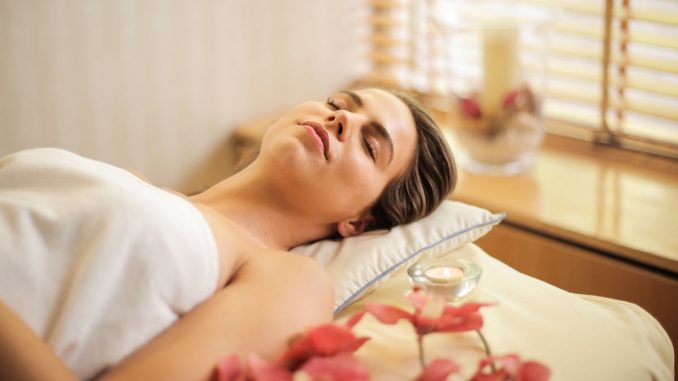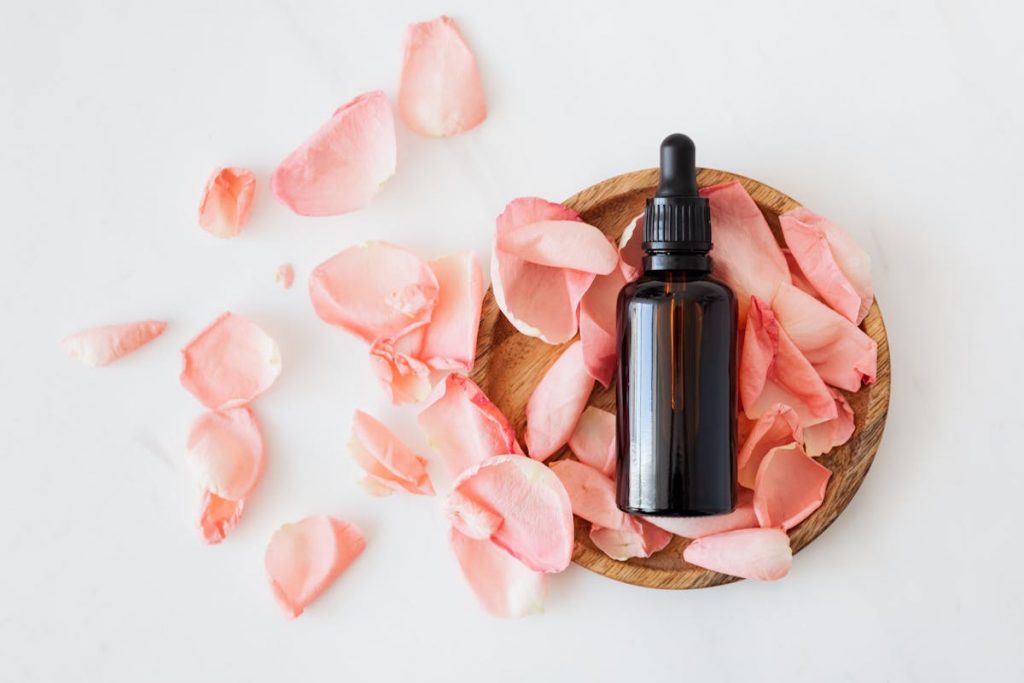

- Stress’s physiological impact involves hormone release, affecting cardiovascular health and immune function.
- Holistic well-being recognizes complementary therapies like massage, acupuncture, and mindfulness for stress reduction.
- Massage therapy, an ancient healing art, offers diverse techniques promoting relaxation, addressing both physical and psychological dimensions.
- Physiologically, massage triggers the parasympathetic nervous system, releasing endorphins, reducing cortisol, and promoting muscle relaxation.
- Psychologically, massage fosters human connection, alleviates anxiety, enhances mood, and tailoring sessions ensure a personalized and effective stress relief experience.
In the relentless pace of contemporary life, stress has become a ubiquitous companion, impacting both physical and mental well-being. Amidst this turmoil, the ancient art of massage therapy emerges as a sanctuary for serenity. This article explores the profound synergy between massage therapy and stress management, delving into the physiological and psychological dimensions of its impact.
From the soothing touch of skilled hands to tailored techniques promoting relaxation, discover how massage therapy not only alleviates the burdens of stress but also becomes a transformative pathway to enhanced overall well-being.
Understanding the Impact of Stress
In the fast-paced rhythm of modern life, stress is an omnipresent force that profoundly affects the body and mind. Physiologically, stress triggers the release of hormones like cortisol, elevating heart rate and blood pressure while compromising immune function. This physiological cascade, if prolonged, contributes to a range of health issues. Acknowledging the critical importance of effective stress management for overall well-being is paramount. Unchecked stress can lead to chronic conditions such as cardiovascular diseases, mental health disorders, and impaired cognitive function.
Holistic Well-Being
Recognizing the significance of complementary therapies in stress reduction is a pivotal step towards holistic well-being. These therapies, such as massage, acupuncture, and mindfulness practices, offer avenues to counteract the detrimental effects of stress on the body. By incorporating complementary modalities into stress management routines, individuals gain valuable tools to address stress’s physical and psychological dimensions. This recognition signifies a shift towards comprehensive approaches that recognize the interconnectedness of mental and physical health. In exploring stress management, understanding its impact becomes a crucial foundation upon which complementary therapies can emerge as integral components, guiding individuals toward a balanced and resilient state of well-being.
The Art of Massage Therapy
Massage therapy is a venerable art form, offering a holistic approach to wellness that transcends the physical realm. Rooted in ancient healing traditions, it has evolved into a comprehensive practice that addresses the interconnected facets of the body, mind, and spirit. Embracing the philosophy that the body functions as a unified entity, massage therapy seeks to restore balance and vitality through intentional touch.
Exploration of Different Massage Techniques
The landscape of massage techniques is diverse, each offering a unique contribution to the art of healing. From the gentle strokes of Swedish massage promoting relaxation to the targeted pressure of deep tissue massage releasing muscular tension, the array of modalities caters to individual needs. Techniques such as aromatherapy and hot stone massage further enrich the experience, providing sensory indulgence and physical rejuvenation. You should consider getting a relaxing deep-tissue massage for stress management. This therapeutic modality extends beyond mere relaxation, delving into the core of muscular tension and stress-induced discomfort.
Highlighting the Connection between Touch, Relaxation, and Stress Reduction
The profound connection between touch, relaxation, and stress reduction is central to the efficacy of massage therapy. The tactile sensations induced by skilled hands alleviate physical tension and stimulate the release of endorphins, the body’s natural mood enhancers. This harmonious interplay creates a tranquil space where stress dissipates, and the mind enters a state of serenity. The therapeutic power of touch goes beyond mere physical manipulation; it fosters a mental and emotional equilibrium, making massage therapy a sublime art that nurtures the whole being. In the embrace of intentional touch, individuals embark on a journey where the artistry of massage becomes a gateway to profound well-being and lasting relaxation.
Physiological Benefits of Massage in Stress Management
Massage therapy is a profound ally in stress management by intricately influencing the nervous system. Through skillful manipulation of soft tissues, massage triggers the parasympathetic nervous system, inducing a relaxation response. This shift from the sympathetic nervous system’s heightened alertness to the parasympathetic system’s restorative calm forms the cornerstone of stress reduction, fostering a state of equilibrium.
Release of Endorphins and Reduction of Cortisol Levels
Central to the physiological benefits of massage is the remarkable interplay between neurotransmitters. As the skilled hands of a massage therapist knead and stroke, the body responds by releasing endorphins – the body’s natural mood enhancers. Simultaneously, cortisol levels, the notorious stress hormone, experience a reduction. This dual effect creates a biochemical environment conducive to stress alleviation, contributing to an enhanced sense of well-being.
Promotion of Muscle Relaxation and Tension Release
Muscle tension, often a physical manifestation of stress, succumbs to the therapeutic touch of massage. Massage therapy’s deliberate and measured strokes facilitate increased blood flow to tense areas, promoting muscle relaxation. As knots and tightness unravel under the hands of a skilled therapist, the physical release mirrors the psychological unburdening, resulting in a harmonious synchronization of body and mind.
Psychological Benefits of Massage in Stress Reduction
At the heart of massage therapy’s psychological benefits lies the profound impact of touch and human connection. The tactile sensations experienced during a massage create a therapeutic dialogue between therapist and recipient, fostering a sense of comfort and security. This intimate connection taps into the innate human need for touch, contributing to an emotional reassurance that transcends the physical realm.
Role of Massage in Alleviating Anxiety and Promoting Mental Relaxation
Massage serves as a sanctuary for the mind, offering respite from the constant demands of daily life. The deliberate, rhythmic strokes a skilled therapist employs send signals to the brain, signaling a shift from stress to tranquility. This process leads to the alleviation of anxiety as the mind unwinds and mental tension dissipates. The focused attention on the present moment, facilitated by massage, cultivates a meditative state that promotes mental relaxation.
The Link between Massage Therapy and Improved Mood
The psychological benefits of massage extend to mood enhancement, creating a positive ripple effect throughout the entire being. The release of endorphins – the body’s natural mood elevators – in response to massage induces a state of euphoria and contentment. This uplifted mood persists beyond the massage session, contributing to an overall improvement in emotional well-being.
Tailoring Massage Therapy for Stress Relief
Effective stress relief through massage begins with an open and communicative dialogue between the client and the therapist. Understanding the client’s specific stressors, preferences, and any areas of discomfort is paramount. This dialogue forms the foundation for tailoring the massage experience to address individual needs, ensuring a personalized and effective session.
Personalized Massage Approaches Based on Individual Stressors
Recognizing that stress manifests uniquely in each individual, a skilled massage therapist tailors their approach accordingly. For some, gentle strokes and soothing techniques may be preferred, while others may benefit from more intensive deep tissue work. Understanding the nature of the client’s stress, be it physical tension or mental strain, allows the therapist to customize the massage, providing targeted relief where it is most needed.
Role of Aromatherapy, Music, and Ambiance in Enhancing the Massage Experience

In creating a holistic and immersive experience, the ambiance of the massage space plays a crucial role in enhancing stress relief. Aromatherapy, with the strategic use of calming scents like lavender, complements the tactile experience, promoting relaxation. Thoughtfully selected music adds an auditory dimension, further soothing the mind. The overall ambiance contributes to a serene atmosphere, fostering a sense of tranquility that aligns with the therapeutic goals of the massage.
Massage therapy emerges as a harmonious conductor in the symphony of well-being, orchestrating relief from stress strains. Beyond its tactile impact, the psychological and physiological benefits weave a tapestry of serenity. By tailoring sessions to individual needs, fostering open communication, and embracing the power of ambiance, massage becomes a personalized sanctuary for rejuvenation. The intricate dance between skilled touch and the client’s unique stressors transforms each session into a bespoke journey toward tranquility. As stress dissipates under the therapeutic hands, massage is an enduring ally, enhancing stress management with a nuanced and revitalizing touch.